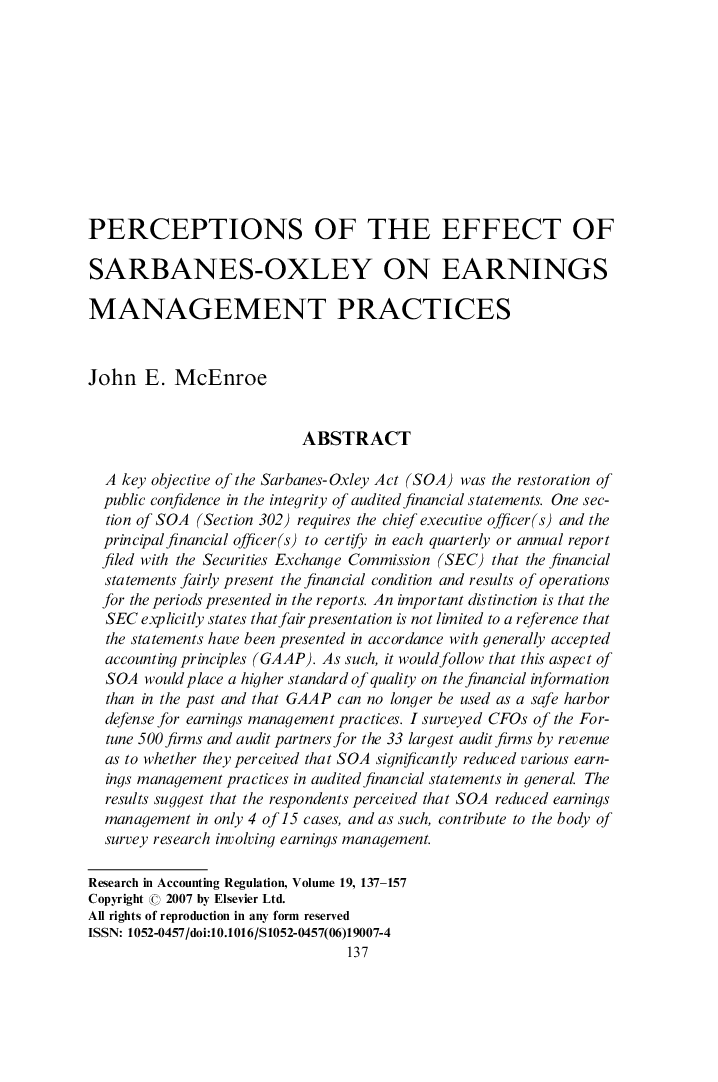| Article ID | Journal | Published Year | Pages | File Type |
|---|---|---|---|---|
| 1006763 | Research in Accounting Regulation | 2007 | 21 Pages |
A key objective of the Sarbanes-Oxley Act (SOA) was the restoration of public confidence in the integrity of audited financial statements. One section of SOA (Section 302) requires the chief executive officer(s) and the principal financial officer(s) to certify in each quarterly or annual report filed with the Securities Exchange Commission (SEC) that the financial statements fairly present the financial condition and results of operations for the periods presented in the reports. An important distinction is that the SEC explicitly states that fair presentation is not limited to a reference that the statements have been presented in accordance with generally accepted accounting principles (GAAP). As such, it would follow that this aspect of SOA would place a higher standard of quality on the financial information than in the past and that GAAP can no longer be used as a safe harbor defense for earnings management practices. I surveyed CFOs of the Fortune 500 firms and audit partners for the 33 largest audit firms by revenue as to whether they perceived that SOA significantly reduced various earnings management practices in audited financial statements in general. The results suggest that the respondents perceived that SOA reduced earnings management in only 4 of 15 cases, and as such, contribute to the body of survey research involving earnings management.
